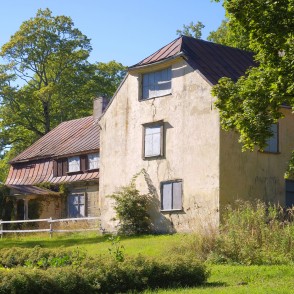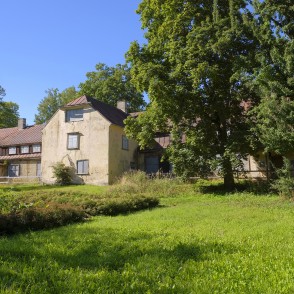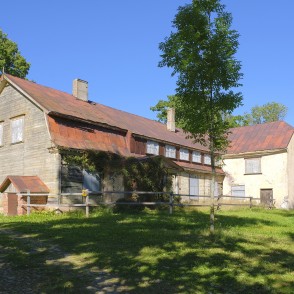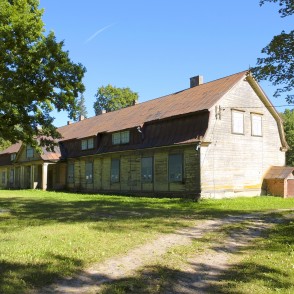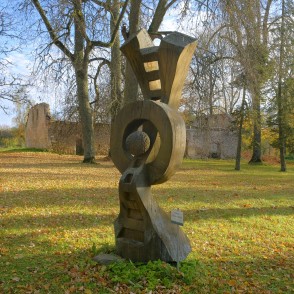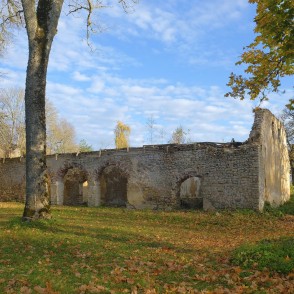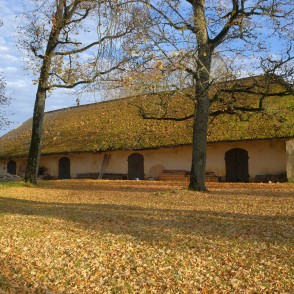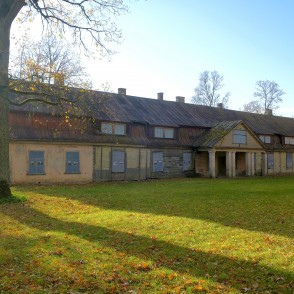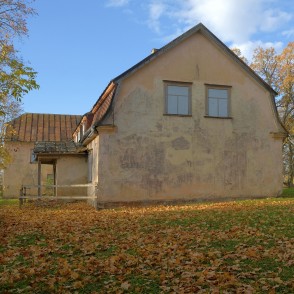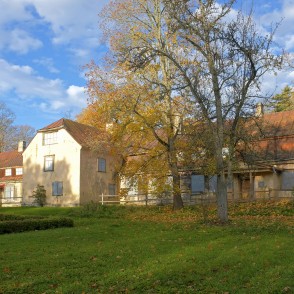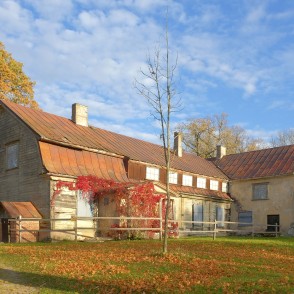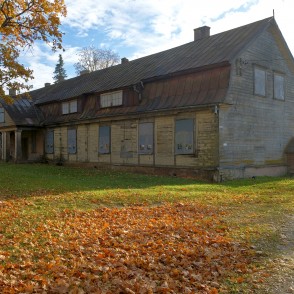Liepa manor (German: Lindenhof, Latvian: Liepas muiža) is a manor house located in Liepa Parish, Cēsis Municipality in the Vidzeme region of Latvia, about 100 km away from Riga and 14 km away from Priekuļi. Liepa estate was established in 1672. The current manor house was built during the 19th century. From 1919 to 1970 it housed the Liepa primary school.
History
In 1582 the Duchy of Livonia became a part of Polish–Lithuanian Commonwealth, which restored the Catholic diocese in Cēsis. At the start of Swedish reign in Vidzeme in 1624, Gustavus Adolphus of Sweden allocated all of his land to Axel Oxenstierna, the Lord High Chancellor of Sweden. In the year 1672 tens of villages were divided from the Cēsu county of Cēsis Castle. In the same year on the land of six of those villages the Liepa estate was established. From 1824 onward the owners of the estate were the noble Pander family. The last owner of the manor was Charlotte von Wulf. From 1919 to 1970 it housed the Liepa primary school.
Manor park
Manor Park was originally created along the stream Little Ellite with many small water ways, bridges over creeks and ditches. Park has variety of tree species including, according to inventory of 1994, linden, oak, maple, ash, Siberian fir, jasmine, lilac, apple. The park is currently in need of renovation. However it still delights visitors with the apple harvest.
The manor's plan of 1787 shows a fountain and a cascade of five ponds. Later plans shows total of nine ponds, added over time. The ponds have survived, but at the time of the restoration of the manor they were in a dilapidated state. Ponds are currently being cleaned up and their former borders restored. Unfortunately, the fountain, which is marked in the plan of 1787, has been lost.
en.wikipedia.org
Manor for more than 340 years is made up on Linden Hill at Rauna river valley in 15 ha wide area with a beautiful natural landscape in a quiet location with an old park, 7 ponds, garden and art objects in nature, between the three medieval towns - Cesis, Valmiera and Rauna Gauja National park (GNP).
Linden manor keeps a lot of interesting historicall cultural events and stories. Manor history can be divided into several phases: establishment and operation of the estate from 1672 until 1919, its new status from 1919 to 90-years, the period of abandonment from 90-years, the 2014th when started rebirth of the estate.
Starting from the 18th century until 1920 the manor has more than 20 owners. Last Manor housekeeper was Baroness Charlotte von Wulf. From the beginning of the Worlds war I, the manor operated as refugee children school. Linden Manor later became the parish property, which were made in housing primary school (up to 1970), apartments, farm buildings. The historicall manor housing and constructions preserved partly. Since 2014 it is held here intensively building renovation and maintenance of the park and garden creation works.
From July 2016 Linden Manor is available to the public in a new capacity - as a guest house, seminars and events center, art resort.
In the Historicall Steward’s house house (1890) is now guesthouse-creativity house (renovation 2016). Accommodation in 4 well equipped rooms (2-4 pers.). Manor also offers art classes, concerts, festivals, ceremonies and wedding-stop place, exhibition hall, group tours with a gide, walking and outdoor events 15 ha broad park.
turisms.cesis.lv

